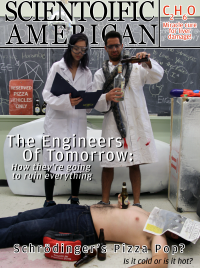Researchers at the University of Saskatchewan were shocked on Thursday when a three-year study on the effects of a high-sugar diet on children with a genetic predisposition for diabetes found a set of car keys reported to have gone missing some time the previous afternoon. Interviews revealed that the majority of researchers expected to find a correlation between the quantity of carbohydrates children consume between the ages of 3 and 6 and the onset of diabetic symptoms.
“After working in this field for a while, I think most of us have a pretty good gut feeling about these things. I’d say that we’re probably either going to find a correlation or not find a correlation, but we’ll just have to wait for the results to come in before we know for sure,” said senior researcher Paul Walberg who has been working on the project since 2013. When the study instead found the set of keys to a Volkswagen Prius belonging to Bill from IT, many researchers in the department were surprised as very few of them had been expecting this result. “This is the beauty of the scientific method,” added Melissa Molinski, head of the Human Biology Department. “The use of empirical evidence allows us to surpass our biases and make discoveries that would otherwise be impossible. In situations like these, it is important for a scientist to keep an open mind; the fact that most of us did not expect to find the car keys does not make this result any less valid.”
Parents across the nation, who had been hopeful that the study might provide some headway for the prevention of this life-changing disease in their children, were disappointed on Thursday. However, Bill from IT was quite pleased to have his keys back, especially since now he will not be needing to hitch a ride from his co-worker Wendy, whose car has been reported to smell faintly of soup.
“Admittedly, these findings are taking our research in a different direction than many of us initially anticipated, but I am confident that these results will prove to be no less valuable in the long run given what some of the future implications might be,” stated Molinski at a press conference the following day. Since then, the department has released a statement listing the prospective applications of its research, indicating several goals to be met within the next few years, namely, finding other items such as pens, sunglasses, handkerchiefs, and small to medium-sized bits of rock. The department’s long term goals include finding larger misplaced objects such as cell phones, wallets, and missing children.



